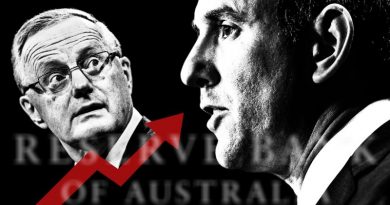Yellen downplays fears $300 unemployment pay hurting jobs market, says closed schools a factor
Yellen: Jobs report underscores the long climb back to economic recovery
U.S. Treasury Secretary Janet Yellen discusses the April jobs report and her outlook for economic recovery.
Treasury Secretary Janet Yellen dismissed concerns that sweetened unemployment benefits contributed to a slowdown in hiring last month, instead suggesting that a lack of child care and fears of contracting COVID-19 were the reason for the worse-than-expected April jobs report, which was the biggest miss in history.
"It's clear there are people who are not ready and able to go back into the labor force," Yellen said during a White House press briefing on Friday.
WHAT BIDEN'S CAPITAL GAINS TAX PROPOSAL COULD MEAN FOR YOUR WALLET
Her comments came after the Labor Department released its monthly payroll report, revealing that employers added just 266,000 jobs in April – well below the consensus 978,000+ estimate from most economists. Experts said the disparity was largely due to a lack of available workers, even though there are some 8 million fewer jobs than there were before the pandemic began.
Although the accelerated vaccine rate, trillions in government stimulus, and easing business restrictions seemed to be coming together to support a robust economic recovery, businesses have reported difficulty in onboarding new workers.
Republican lawmakers were quick to blame the $1.9 trillion coronavirus stimulus bill, known as the American Rescue Plan, that Democrats passed without a single GOP vote in March for the lackluster report. That measure expanded unemployment benefits by $300 a week and sent a third $1,400 stimulus check to most U.S. households. Montana and South Carolina are among the states ending the expanded unemployment benefits for residents next month.
WHAT'S IN BIDEN'S $2.25T TAX AND INFRASTRUCTURE PLAN?
But Yellen suggested there were other reasons for one of the worst downside misses in decades – including a lack of in-person learning at schools and concerns among workers about safety related to COVID-19.
"I don't think that the addition to unemployment compensation is really the factor that's making a difference," she said, adding: "Caregiving responsibilities are still important reasons people are unable to return to work…Concerns about the pandemic and the health consequences I think remains a factor for many."
For instance, she noted the bulk of job creation took place in the leisure and hospitality industry, which accounted for some 331,000 workers last month. But Yellen suggested that if sweetened jobless aid were to blame for the lack of job growth, the leisure and hospitality sector – where wages are typically low, and the relative financial benefit to collecting unemployment benefits high – would not have seen its payroll expand so vigorously.
A recent Bank of America analyst note suggested that Americans who earned less than $32,000 before the crisis began would be better off in the near term collecting jobless benefits rather than working.
GET FOX BUSINESS ON THE GO BY CLICKING HERE
President Biden, meanwhile, used the latest jobs data to make the case for his next $4 trillion tax and spending proposals, known as the American Jobs Plan and the American Families Plan. The measures, which make up the basis of his "Build Back Better" agenda, would drastically expand the nation's social security net and shift trillions away from wealthy Americans and corporations with a slew of tax increases.
"Some critics said we didn’t need the American Rescue Plan, that this economy would just heal itself," Biden said from the White House. "Today’s report just underscores, in my view, how vital the actions we are taking are. Our efforts are starting to work, but the climb is steep, and we have a long way to go."
Source: Read Full Article



